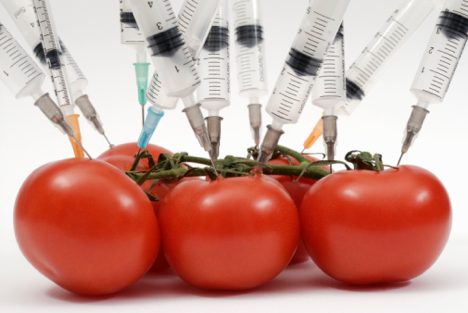This is an interesting story via March Against Monsanto:
“Was French Prof. Gilles-Eric Séralini correct when he discovered that scientific feeding experiments past 90 days with GMO food and rats can cause serious health problems including tumors?
The answer to that question has been debated ever since the initial publication of his study, culminating in a republication of the study in another peer-reviewed journal that wasn’t nearly as well covered as the initial retraction was by the mainstream media.
Now, Prof. Séralini is in the news again – this time for winning a major court victory in a libel trial that represents the second court victory for Séralini and his team in less than a month.
On November 25, the High Court in Paris indicted Marc Fallous, the former chairman of France’s Biomolecular Engineering Commission, for “forgery” and the “use of forgery.” The details of the case have not been officially released.
But according to this article from the Séralini website, Fallous used or copied the signature of a scientist whose name was used, without his agreement, to argue that Séralini and his co-workers were wrong in their studies on Monsanto products, including GM corn.
A sentencing for Fallous is expected in June 2016.
Second Court Victory Reached
This was the second such court victory for the professor’s team, following a November 6 victory in a defamation lawsuit over an article in the French Marianne magazine which categorized the Séralini team research as “scientific fraud (you can read more about the case here).”
What few people realize about the original Séralini study on GMOs is that it was only retracted after a serious PR offensive from Monsanto and the Biotech industry, one that included the creation of a whole new position on the original Food and Toxicology journal: Associate Editor for Biotechnology.
The new position was actually filled by a former Monsanto employee who helped convince the journal’s author to retract the study.”
I’m not a fan of GMOs. They are an unnecessary risk vector as well as being a source for genes that destroy plant diversity and wreck long-standing varieties.
“Ecologically, in addition to intentional cultivation, GMOs have the propensity to spread uncontrollably, and thus their risks cannot be localized. The cross-breeding of wild-type plants with genetically modified ones prevents their disentangling, leading to irreversible system-wide effects with unknown downsides. The ecological implications of releasing modified organisms into the wild are not tested empirically before release.
Healthwise, the modification of crops impacts everyone. Corn, one of the primary GMO crops, is not only eaten fresh or as cereals, but is also a major component of processed foods in the form of high-fructose corn syrup, corn oil, corn starch and corn meal. In 2014 in the US almost 90% of corn and 94% of soybeans are GMO [11].
Foods derived from GMOs are not tested in humans before they are marketed. The widespread impacts of GMOs on ecologies and human health imply they are in the domain of the PP (Precautionary Principle). This should itself compel policy makers to take extreme caution. However, there is a difficulty for many in understanding the abstract nature of the engagement in risks and imagining the many possible ways that harm can be caused. Thus, we summarize further the nature of the risks that are involved.”
Though “March Against Monsanto” isn’t exactly a balanced news source, I wouldn’t be surprised at all if the story on GMOs and tumors was stuffed on purpose. We’ve seen this sort of thing happen before (remember Climategate?).
When there’s a lot of money or power involved, the truth often gets short shrift.


1 comment
Don’t you love the logic used by Big Ag and GMO companies:
For the sake of argument – let’s assume their 1st argument is valid (it’s not but let’s assume it is)
Big Ag: Our modifications only affect non-human cells
DTG: And there are no non-human cells within a person’s body (gut)?
Big Ag: uhh
2nd Example:
USPTO [patents]: Our product is significantly different than non-GMO products
USDA/FDA [safety]: Our product is NOT significantly different than non-GMO products
Comments are closed.